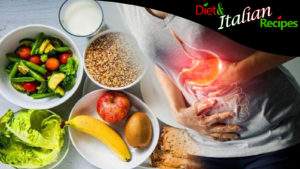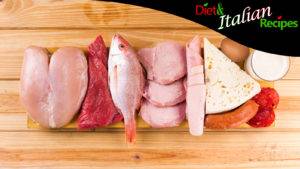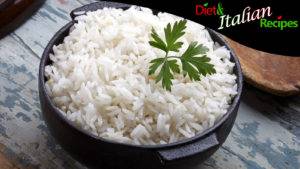The alkaline diet allows changing the acidity of the body, which is indicated by a pH number. One wonders if an alkalizing diet is necessary, aids in weight loss, truly works, and if it is also useful against tumors. We will answer these questions by explaining the mechanisms of acidity regulation, thus how the alkaline diet can improve this parameter, and what the benefits of a basic nutrition are.

How the pH of the human body works
Organs, tissues, and cells function better when the pH is basic, or alkaline. And that’s why an alkaline diet is considered a panacea: its purpose is to reduce the acidity of the body and make us feel rejuvenated.
Moreover, the human body is meant to be slightly alkaline. Ideally, we should have a pH ranging from 7.1 to 7.5 (even better if we have a value between 7.39 and 7.41). However, an imbalanced diet and other physiological activities make our body an acidic environment. For example:
- Acidic diet (rich in foods that acidify the body),
- Lack of sleep or poor sleep quality (less than 8 hours per night and waking up tired),
- Hectic rhythms and psycho-physical stress,
- Intense physical activity,
- Irregular schedules for daily activities.
All these factors inevitably lead to an acidic pH or, rather, predispose the body to acidification. To maintain an alkaline pH, it is necessary to have a healthy lifestyle, such as:
- An alkaline or acid-avoiding diet,
- Getting at least 8 hours of sleep per night (waking up refreshed),
- Light routine,
- Engaging in moderate physical activity,
- Regular schedules for normal daily activities.
Therefore, by combining good eating habits with a healthy lifestyle that aligns with the natural rhythms of the human body, we make our body alkaline.
How to reduce acidic pH with an alkaline diet
The alkaline diet promotes the consumption of alkalizing foods such as vegetables, fruits, legumes, and nuts. Foods with lower pH (more acidic), such as meat, fish, and dairy, are excluded.
Essentially, in many aspects, it resembles a vegetarian diet, although with a different underlying reason: it is a diet low in animal proteins and rich in plant sources.
Does the alkaline diet work? AIRC’s opinion
No rigorous study has ever demonstrated that alkaline diets have any preventive or curative effects on cancer due to pH. Those who suggest these diets emphasize the importance of consuming fruits, vegetables, roots, tubers, and legumes while reducing protein intake. These foods can certainly have protective effects against tumors, but due to the nutrients and other substances they contain, not because they can influence the body’s pH. For example, fiber consumption reduces the risk of intestinal cancer. However, even a diet that fully meets scientific standards is not capable of curing cancer on its own; it can help the body cope with it and better tolerate treatments.
Acidic foods: avoid or reduce them to rebalance your pH
As mentioned earlier, acidic foods are mainly found among those of animal origin. Here is a list of commonly consumed highly acidic foods:
- Meat, particularly red meat; fish is less acidic.
- Dairy products, especially cow’s milk dairy, while goat and sheep dairy generate less acidity.
- Eggs
- Refined grains, such as white bread, all-purpose flour, and processed sweets.
- White sugar, one of the most potent acidifiers unfortunately present in many packaged products. It’s better to substitute it with organic honey, syrups (agave, maple, malt, rice), or stevia.
- Table salt, better to use Himalayan pink salt; when possible, replace it with spices.
- Dried legumes
- Cocoa
- Coffee
- Alcoholic beverages
- Carbonated drinks
- Black tea
How the Alkaline Diet Works
If you have heard about the alkaline diet and are wondering how it works and if it can help reduce the acidity in your body, you’ve come to the right place. The alkaline diet is a nutritional approach that aims to reduce the acidity of the body through the conscious choice of certain foods. Following an alkaline diet can help restore balance and improve the pH of your body.
Here is an example of an alkaline diet that you can consider:
- Vegetables: Include generous portions of leafy green vegetables such as spinach, broccoli, cabbage, and lettuce. Also, add other alkalizing vegetables like carrots, cucumbers, zucchini, and peppers.
- Fruit: Opt for fresh and ripe fruits such as bananas, apples, citrus fruits, melons, and berries. These are sources of alkalizing nutrients that help maintain a balanced pH.
- Legumes: Legumes like beans, lentils, and chickpeas are a good source of plant-based protein and are alkalizing. You can include them in your soups, salads, or as a base for main dishes.
- Whole grains: Choose whole grains like brown rice, quinoa, buckwheat, and spelt. These foods provide sustained energy and help maintain alkaline balance in your body.
- Nuts: Almonds, walnuts, Brazil nuts, and macadamia nuts are examples of alkalizing nuts. Add them as snacks or as toppings for salads and dishes.
- Beverages: Drink alkaline water or add fresh lemon or lime juice to your water to make it alkalizing. Avoid carbonated drinks, black tea, and coffee, which can increase body acidity.
- Foods to avoid or reduce: Limit the consumption of acidic foods such as red meat, dairy products, eggs, refined flour, white sugar, white salt, cocoa, coffee, alcoholic beverages, and carbonated drinks.
It is important to emphasize that following an alkaline diet is not the only key to health. It is necessary to adopt an overall healthy lifestyle, which also includes moderate physical activity, sufficient sleep, and effective stress management.
Lastly, it is important to note that there are no rigorous studies demonstrating specific effects of alkaline diets on cancer prevention or treatment due to pH. However, an alkaline diet based on healthy foods such as fruits, vegetables, and legumes can provide numerous health benefits, including a reduced risk of tumors, thanks to the nutrients and substances they contain.
Example of an Alkalizing Diet Day
Here is an example of a day on an alkaline diet:
- Breakfast: Oatmeal porridge with almond milk and fresh fruit (such as bananas and strawberries) with a cup of green tea or a glass of alkaline water with lemon juice.
- Mid-Morning Snack: A handful of almonds or walnuts.
- Lunch: Mixed salad with leafy green vegetables (spinach, lettuce) dressed with olive oil and apple cider vinegar. A serving of quinoa with grilled vegetables (such as zucchini and peppers). A serving of legumes (beans or chickpeas) as a side. A slice of pineapple for dessert.
- Afternoon Snack: Baby carrots or celery with homemade hummus.
- Dinner: Grilled salmon with herbs. Quinoa or brown rice as a side. Steamed vegetables (broccoli, asparagus) seasoned with lemon juice. A cup of herbal tea.
- Evening Snack: Soy yogurt with a drizzle of organic honey and granola.
Remember to drink plenty of alkaline water or add fresh lemon juice to your water throughout the day. This is just an example of a day on the alkaline diet. It is important to vary your diet and include a variety of fruits, vegetables, legumes, and whole grains to ensure an adequate intake of nutrients. Additionally, customize the diet according to your food preferences and always consult a healthcare professional or nutritionist for personalized advice.
SHARE: Alkaline diet: example of an alkalizing diet to reduce pH acidity.
The information provided in the Diet and Italian Recipes articles is for INFORMATION ONLY and does not intend to replace the opinion of professional figures such as a doctor, nutritionist, or dietitian, whose intervention is necessary for the prescription and composition of personalized dietary therapies.











